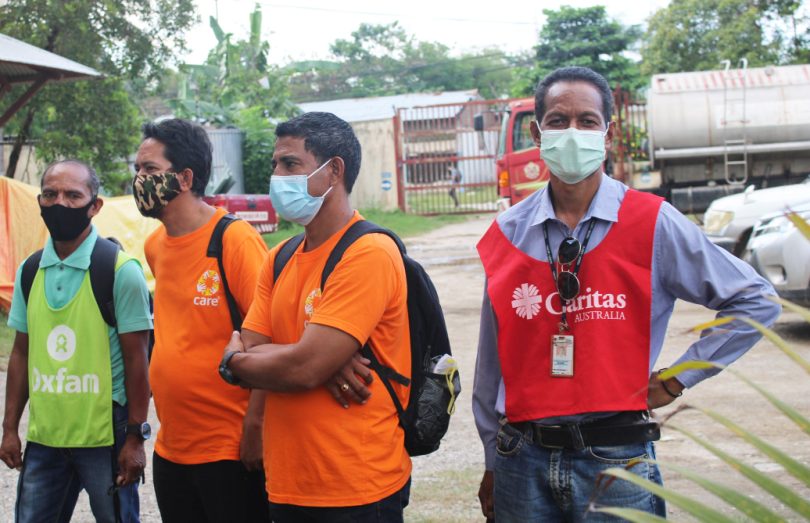Key development, diplomacy and defence policies have called for Australia to take a “whole-of-nation” approach to its engagement with the world. But what does this look like? Moving beyond a whole-of-government approach to a whole-of-nation approach involves a range of other actors from fields including business and investment, science and technology, education, sports, culture, media and civil society.
Released at Parliament House and online in February, a new research paper is the result of extensive consultation with more than 113 individuals and 93 organisations across the region and in Australia. The opening remarks at the launch by the Minister for Foreign Affairs, Senator Penny Wong, underlined the basis of a whole-of-nation approach – that global engagement is not just the domain of core international policy actors but implicates a far wider constituency:
It’s not just up to our diplomats, nor our military alone. It starts with who we are as a country: our First Nations history, our multicultural fabric, our institutions, business, academia, and civil society.
Many consulted felt that the scale of international problems such as climate change and geopolitical competition is such that it is an urgent necessity for Australia to take more of a whole-of-nation approach. Others saw the shift to such an approach more as an opportunity to understand and harness the range of insights and assets offered by a diversity of actors in order to achieve results.
A key message of the paper is the need for a more purposefully coordinated Australian statecraft. Shadow Minister for Foreign Affairs, Senator Simon Birmingham, also speaking at the launch, recognised that diplomatic efforts must “extend beyond formal negotiations and state-to-state interactions; they have to encompass a wide array of stakeholders including NGOs, businesses, cultural institutions and grassroots movements’”.
The paper goes beyond the abstract idea that “whole-of-nation” approaches are a good thing in principle and provides strong reasons for drawing on all elements of statecraft and incorporating the perspectives of diverse actors.
A whole-of-nation approach increases effectiveness by harnessing the knowledge and skillsets of the entire country to drive Australia’s international engagement, leveraging Australia’s assets for maximum influence. It streamlines how Australia conducts its affairs and makes Australia a more consistent, predictable and reliable actor. It empowers a range of actors by investing in their skills, capabilities and opportunities. And it helps Australia fulfil its aspiration to a global leadership role.
During our consultations, concerns were raised about what a whole-of-nation approach might mean in practice. For example, business and industry bodies noted there are limits to how much they can be expected to subscribe to a whole-of-nation position given commercial imperatives. The research sector noted that research and knowledge-building are often most effective when they can pursue discovery without directives. Non-government organisations and civil society groups also expressed concern about being expected to subscribe to a single national position.
My own research is on civil society participation in national, regional and international forums, so this is the element of the whole-of-nation approach that I will be watching most closely. Shifting to a whole-of-nation approach crucially requires the ability to engage in and influence dialogue with civil society. Among other things, this could serve to counteract the shrinking of civil society’s operating space. This is a matter of ongoing concern and the subject of a campaign at the international level, which is pushing for active and equitable participation by civil society, rather token participation.
The carefully planned-for inclusion of a more diverse range of actors in international engagement will provide opportunities to hear more points of view and also opportunities for greater coherence. Civil society inclusion must go beyond attempts simply to aggregate perspectives. It has to make space for challenges and criticisms of ways of working and seeing – or run the risk of being perceived as an attempt to buy silence or co-opt support. Any dialogue processes must be authentically open and inclusive, allowing space to hear different voices. This will ensure that the broadest possible base of knowledge and experience is leveraged for effective international engagement.
The new research paper should interest anybody interested in knowing how and where multiple actors, using multiple elements of statecraft, can contribute to international development, diplomacy and defence discussions, debates and policies.



It requires picking which groups get access. There is often a lot of resentment between NGOs as to which get listened to or gain funding. Who appoints these NGOs?
Significant paper. Too often serendipity has been the dominant factor in maintaining Australian relationships with our neighbours. Former students and colleagues whom we taught and worked with in Laos in the 70s, 90s and early 2000s, Cambodia in the 90s, Vanuatu 90s and Indonesia 2000s remain close personal friends. We talk to them regularly and visit often. These links are important at the personal level and fairly significant at very senior levels. Former students and colleagues are now directors of major government departments and government ministers or leaders of multinational organisations. We benefit as individuals, but almost nothing is known or gained at higher levels.